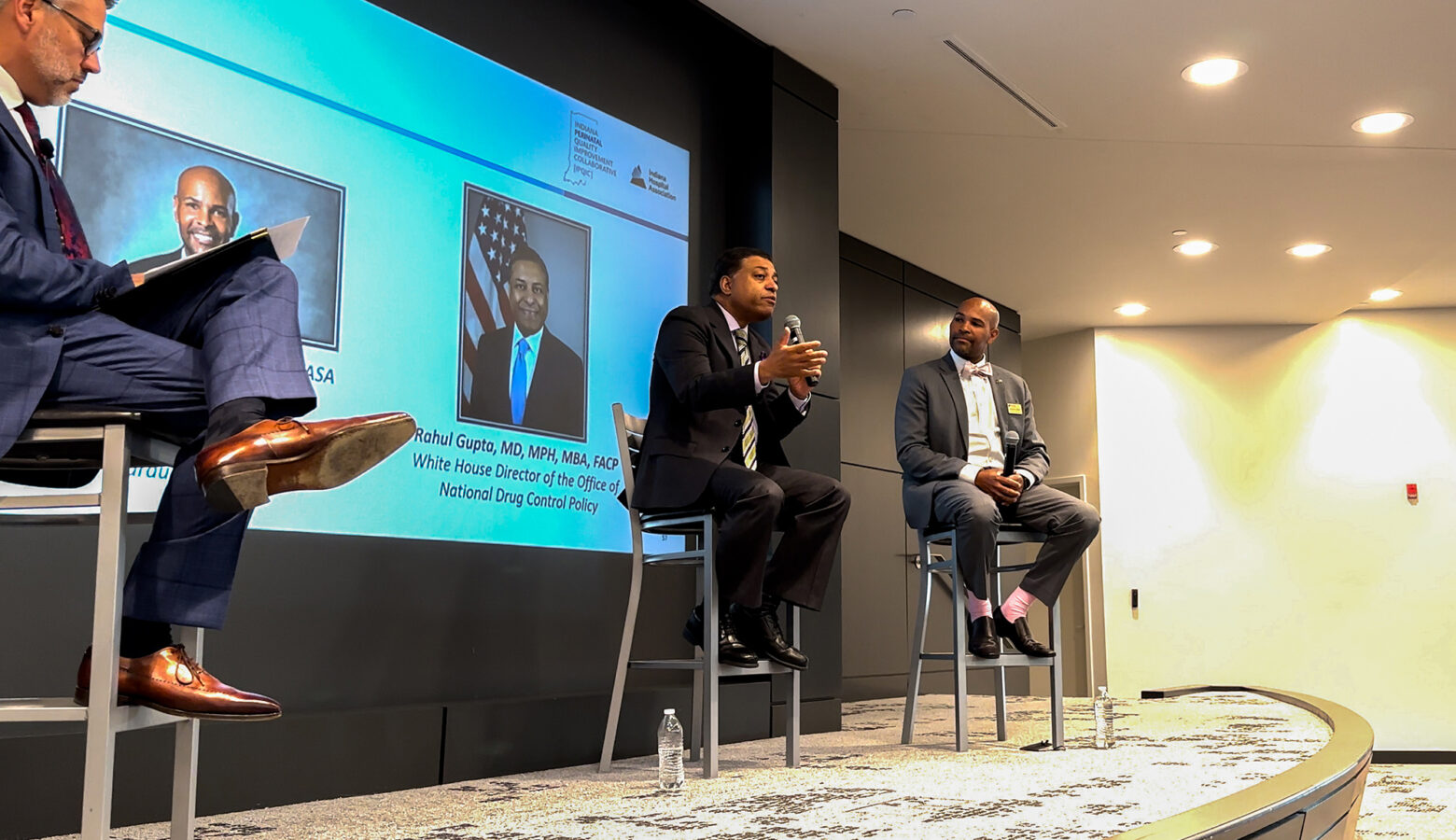National drug policy experts want to address policy, stigma over perinatal substance use in Indiana

Indiana’s infant and maternal mortality rates remain among the worst in the country. And state data shows substance use during pregnancy contributes to the issue.
The head of national drug policy told health leaders and policymakers in Indiana Thursday to consider how health care is only one part of the solution.
The Indiana Department of Health reported substance use disorder was the most common contributing factor for all pregnancy-associated deaths in 2020.
Dr. Jerome Adams, former U.S. surgeon general and Indiana state health commissioner, directs the Health Equity Initiatives at Purdue University. He said solutions have to recognize that stigma prevents people from seeking treatment and being successful in recovery.
“I would still contend that stigma kills more people than fentanyl does,” Adams said.
Adams isn’t the only person who wants to address the dangers of stigma. Dr. Rahul Gupta directs the Office of National Drug Control Policy and is the first medical doctor to hold the position. He said it’s not just on communities to address this problem.
“I will say stigma is nowhere more present and alive and well in the health care institutions themselves and the health care system itself,” Gupta said.
Join the conversation and sign up for the Indiana Two-Way. Text “Indiana” to 73224. Your comments and questions in response to our weekly text help us find the answers you need on statewide issues.
Gupta and Adams also said the issue is about more than health care. Gupta said housing, food security and transportation are all a part of getting a patient connected to treatment.
“It’s going to be critical that we bring an entire system and health care becomes a partner of the system rather than the only system that you try to fix the problem with,” Gupta said.
Adams said jobs also play an important role since they lead to having insurance and financial support during recovery.
“We need employers at the table who understand what a supportive environment is and who don’t have stigma against hiring or retaining someone with a history of substance use disorder and who understand that this is a disease,” Adams said.
Gupta and Adams spoke at the sixth annual Perinatal Substance Use Conference in central Indiana.
Abigail is our health reporter. Contact them at aruhman@wboi.org.

